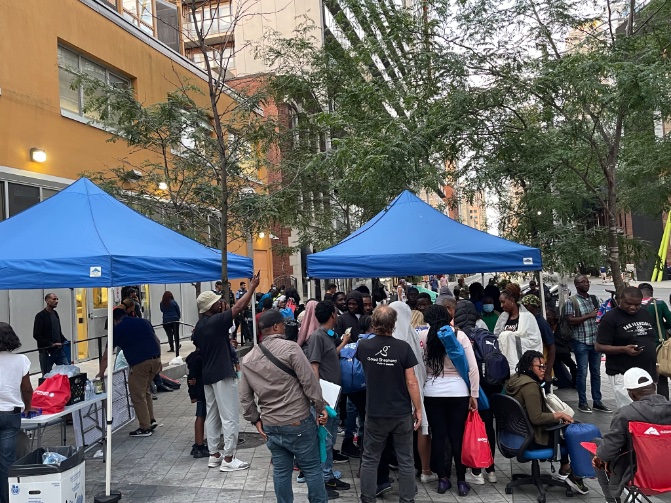Last month, the federal government announced that it will provide Toronto with $97-million to manage the city’s ongoing refugee crisis. Although more funding is sorely needed as the region is struggling to cope with an influx of migrants, fixing Canada’s broken immigration system will take more than one big cheque—it needs to start with having a plan.
We’ve heard it before: endless delays in visa processing, unaffordable housing in Canada’s major cities, underfunded shelters—these have become the day-to-day realities of anyone trying to immigrate to or seek asylum in this country. Canada admits more economic-class migrants than any Western country, reaching a historic 465,000-person peak last year, yet it can’t do the bare minimum to set them up for success.
Make no mistake. Canada should welcome people with valid reasons for seeking asylum. And the economy desperately needs a steady supply of qualified immigrants for it to expand and prosper. But our leaders do a disservice to both those seeking to migrate to Canada and to Canadian citizens when they accept refugees into our country at a time when our urban shelters are above capacity and our policies leave most applicants in existential limbo.
Take what Torontonians witnessed at the end of July. Some 200 individuals—mostly African migrants with valid reasons for seeking asylum—were left with no choice but to camp out on the street, after being turned away from shelters that said they did not have enough resources to assist them. One refugee told the media that he sometimes wishes he had never come here.
Where the government failed, civil society stepped in, as several churches agreed to temporarily house the refugees as long as they can. B’nai Brith Canada, the country’s most senior human rights organization, is doing its part by assisting them with emergency food and clothing. This is not the first time that our agency, on behalf of Canada’s grassroots Jewish community, has endeavoured to remedy the inadequate government response to refugees, having recently assisted Ukrainian refugees by providing them with access to affordable housing units.
That it had to come to this level is highly unfortunate. Although B’nai Brith and other nonprofits have a near-endless supply of goodwill, it is not clear how much longer parishes and charities can practically afford to compensate for Ottawa’s shortcomings—particularly at a time when many charities are themselves struggling because of the downturn in the economy.
If Canada is going to continue to accept immigrants and asylum seekers at the current rate, Ottawa needs to have a plan in place for every person before they are allowed to settle here. This could be as simple as coordinating with existing shelters, when needed, in advance rather than relying on them to react to problems when they arise.
Moreover, the government could give additional funding to social service agencies so they can hire more staff—a solution that would shore up these institutions in the interim while they navigate this crisis—and would bolster their resources so that they can better manage the next one.
Multiple refugees have also complained about delays in work-permit processing. If the government cannot afford to provide refugees with shelter and other necessities, it can at least expedite their permits so they can work, contribute to our economy, and pay for their own housing.
But what migrants may need the most is clarity. Some are being told to “call Service Canada” even though the agency can do little to help them. The government ought to consolidate its resources and ensure refugees are housed with an acceptable degree of human dignity.
Thank goodness for the kindness of strangers and the charitable sector, but it is inhumane for Canada to fail refugees in their hour of need.
Michael Mostyn is chief executive officer of B’nai Brith Canada.
